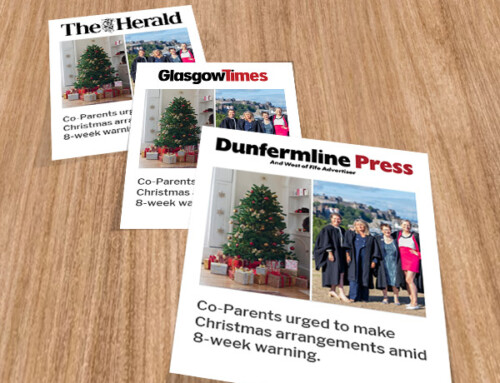Never mind the Brexit debate of “Will we or won’t we go?”, Family Law solicitors know that conversations about splitting up are taking place in households in Scotland.
Splitting up
Deciding to leave a relationship is an incredibly difficult decision. People are often unsure what will happen to their finances and children, which have to be balanced with the feelings of deep unhappiness that can lead to relationship breakdown.
If you are considering leaving a marriage, you need to be aware of how the law will apply to you.
If you continue to live together as husband and wife, you will have all the rights and responsibilities granted to married couples in law. This includes special rights on the death of your spouse. These rights can be very important especially when considering the house – usually the most valuable asset owned by most couples
Problems of automatic transfers – unintended consequences
In most cases, the title to the family home is held jointly in the names of the husband and wife. Some couples may have an automatic transfer clause, known as a ‘survivorship destination’, where the property title is held in the names of e.g. ‘ Mr and Mrs Smith or whoever survives’. This means that if Mr Smith dies, the title to the Smith’s house automatically transfers to Mrs Smith without any conveyancing being required. If Mr and Mrs Smith had separated at the time Mr Smith died, this may not be what was intended- at least by Mr Smith!
Such automatic transfers are now not recommended in modern conveyancing but we do see instances of them at least every couple of months.
The great downside of automatic transfers is what happens when a couple separates. The automatic transfer written in the title remains in place until the parties agree, in writing, that it should be discharged . We normally record a discharge in a formal legal contract. If you fail to reach agreement on what should happen with the title of the house, a court can make orders during formal divorce proceedings. However, until either agreement is reached or a court order is made, any automatic transfer can continues to operate. This means that if Mr Smith dies whilst the parties are separated Mrs Smith will inherit his share of the house.
This can have a significant consequences. Many couples are separated for a number of months or even a couple of years before they reach ether agreement or divorce. In that time, they might have new partners and even new children. Mr Smith could also have children, potentially from a previous relationship, or other family members that he would wish to inherit his share of the family home now that he and Mrs Smith are separated. It is therefore crucial to take advice at an early stage if you believe that the title to your home could have automatic transfer clause.
If the title to home is held in the joint names without an automatic transfer clause, the legal position if either spouse dies during the couples’ separation is different.
Effect of Wills
If Mr Smith had a will at the date he died, his share of the family home will be inherited by his beneficiaries. You should therefore update your will if you decide to separate and you do not want your spouse to benefit if you die before you are divorced.
If you have divorced, the law has recently changed so that your ex-husband or ex-wife will not inherit from a bequest in your will unless you make it specifically clear that you want them to inherit even though you are no longer married.
If Mr Smith died without a will, which is known as dying intestate, Mrs Smith might be able to claim on his share of the family home if they are still living together at the date that he died, using special rights called prior rights.
With or without a will, should Mr Smith die before the couple either signed an Agreement or divorced, Mrs Smith would be able to claim special rights known as ‘legal rights ‘even if she was not included in his will. Legal rights allow a spouse to make a claim against what is known as the deceased’s moveable estate, which includes all of his assets except land and property.
As with so many challenges in life to ignore the problem usually costs more and a bit of quality advice early on can save money – contact [email protected] or call 0131 622 8477.







